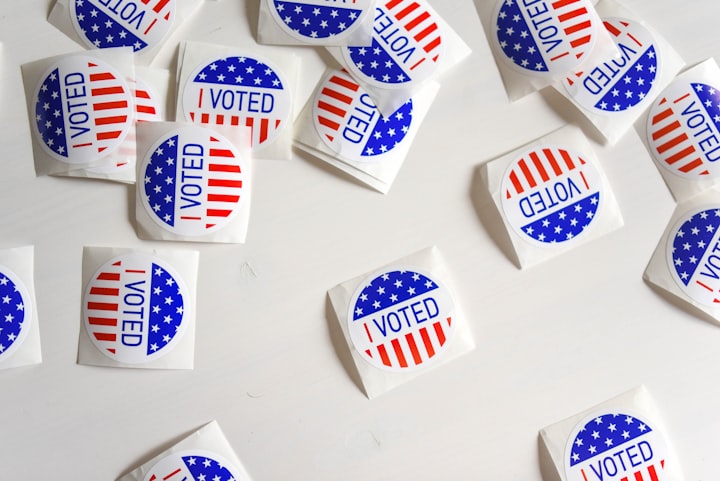The Polls, They May Be Right, They May be Wrong.
They sort of plan for that.

In 2007 I worked for a survey company. This is what we did, and therefore I watch polls, and also understand how subjective they are. My training started with explaining how Bill Clinton won his first Presidential election. He would give a speech, and then the survey company would poll people on their responses to his speech, and they would tweak the policy stances just enough to affect his appeal without losing current supporters. For example, if he made a statement about guns, they would survey people on how he could tweak that stance to appeal to more voters.
I often hear people express skepticism about the existence of political polls “I’ve never been called.” is something I have heard several times. That may be because the sample gets filled before it reaches you. I would call someone and ask them demographic questions, age, gender, political affiliation. Usually the survey was targeted, so if the target demographic was men between 18 and 24, who identified as Republican, and you were a man in your 30s who identified as independent, the call would end. It was all scripted, so it I would literally check boxes and the next page would say “Thats all we need from you today, thank you for your time.” The calls that resulted in surveying people were reading speeches by “anonymous candidates” it was only somewhat anonymous because it was the Clinton, Obama primary polling, so I would read the speech and ask what the person liked or disliked about it, and what they would need to vote for this person.
When the 2016 election seemed to go so sideways, there was a backlash against the polls. They became the scapegoat of both sides of the political playing field. The fact is that the polls in 2016 were accurate. The polls got the popular vote estimations accurate, technically the polls were not mathematically inaccurate in predicting the Electoral College. Donald Trump won the by roughly 100,000 votes it was a margin so small they failed to account for it. Most polls tell you their margin of error to compensate for the fact that there could be other variables in a group of people.
Most margins of error are around 3 percentage points. Clinton went into the election night with a 3.8 lead over Trump, which isn't a statistical but its not even a full point lead. This made it very difficult to determine the electoral college accurately. At this exact point in the election Clinton had a lead of 5.5 points, she would have a lead of roughly 2.5%, and thats not even calculating Trumps margin either. and Biden has a lead of 8.9 so even taking into account the margin of error Biden still would have a 3% lead if Trump voters are being undercounted, and Biden over. .
One race I am watching is the McConnell/McGrath race in Kentucky. Five-thirty-eight doesn't have any new polling since Sept. 24th. I see references to recent polling, but there are no numbers for those recent polls. If you consider RBG passed on the 18th of September, and McConnell is pushing her replacement through the Senate as we speak, Trump getting Coronavirua , and lack of a stimulus, it seems impossible that it's not affecting public perception. The campaigns themselves pay for the polls, so in September it looked like McConnell was the clear winner. Perhaps polling doesn't seem like the best use of money. Kentucky has a Democratic governor but Trump is the leader in the presidential race, I expect it to be a closer race than the polls in September were showing. I have no expectations, I just sort of want to see the numbers.
As I am watching the polls, I know that they are only sampling a portion of the population and are subject to news cycles. There are also so many polls you have to look at sites such as FiveThirtyEight and see several polls to compare them. Some polls show Biden with a 13 point lead, while the majority fall between 8 and 10. So when you turn on MSNBC, ABC, Fox News, and they give you one number is only the piece of the puzzle they chose to trust and provide to us. Which is not a problem as long as we consume more than one media source and consider the variations in their data may not be lies, but a varied representation of data.
Sources
Kentucky Slashes Number of Polling Places Ahead of Primary—Especially Where Black Voters Live
motherjones.com
Why Biden’s poll lead is different from Hillary Clinton’s
nbcnews.com
\Latest polls give Democrats a good chance of a Senate majority - Los Angeles Times
latimes.com
Understanding the margin of error in election polls | Pew Research Center
pewresearch.org
Understanding the margin of error in election polls | Pew Research Center
pewresearch.org
RealClearPolitics - Election 2020 - Kentucky Senate - McConnell vs. McGrath
realclearpolitics.com
Understanding the Role of Polls in Politics
dummies.com
Democrat Amy McGrath takes on Senate Majority Leader Mitch McConnell in Kentucky
msn.com
These polls were the most accurate in 2016. Here’s where they stand now | wfmynews2.com
wfmynews2.com
RealClearPolitics - Biden vs. Trump Compared to Clinton vs. Trump (2-way)
realclearpolitics.com
How Political Polling Works | HowStuffWorks
howstuffworks.com
About the Creator
Kelly Morris
I am sort of a novice in numerous areas, I have an associates in elementary education, I am working on my project management degree, I love art, and painting, sewing, knitting. I am all over the place and not an expert in any one thing.






Comments
There are no comments for this story
Be the first to respond and start the conversation.